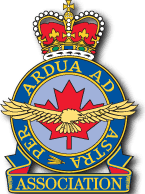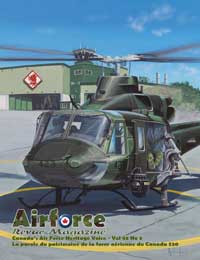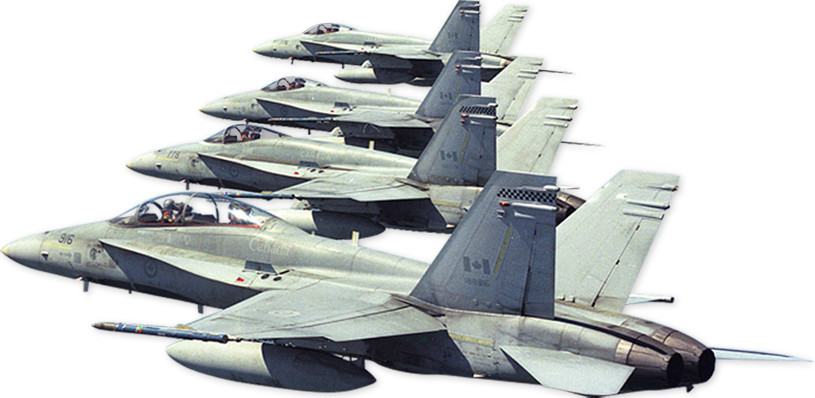Canadians and the Holocaust
From the KLB Club and the accounts of Edward Carter-Edwards of Smithville, Ontario
Whenever the word Holocaust is heard on the radio, read in the newspapers or seen on TV, immediately scenes of crematoriums, mass graves of murdered innocent civilians, gas chambers, women, children, old and young men being savagely .herded into box-cars flash before our eyes. Yes, the whole world is aware of the” Holocaust, in which millions of Jewish people and other nationalities were exterminated, What is not known, especially here in Canada, is that 26 •former Canadian Air Force Air Crew personnel ended up in the infamous concentration camp called the Buchenwald Concentration Camp, and most survived 3 months as inmates of this horrendous “Death Camp”. The question you may ask is, “How did this happen”? During the Spring of 1944 up to and shortly after “D” Day, with the increase of bomber and fighter raids on France, Holland and Belgium, a greater number of Air Crews were being shot down, which meant the Resistance movement was helping and handling more people than usual. This allowed the German Intelligence and their Collaborators to mingle unnoticed more easily with the Resistance and turn the Air Crew personnel over to the German authorities after arrangements had been made to move the Air Crew to safety whether to Spain, Switzerland, or holed up at a location picked out by the Resistance people, This is what happened to me. and all· the 168 Allied Air Crew who ended up in Buchenwald. While hiding out, most Airmen changed into civilian clothes to avoid capture. Regretfully, when turned over to the German authorities upon being sold out by a collaborator, we were classified as spies and saboteurs and threatened to be shot. We were beaten very thoroughly upon capture and taken to the notorious Gestapo prison called “Fresnes” near Paris, again beaten up, interrogated and threatened to be shot. Most spent many weeks in this prison, sometimes- four people to a cell approx. 6 ft. by 8 ft., infested with fleas, lice etc., and with meagre rations of food. Many became ill with dysentery and very weak from lack of exercise,
Eventually, because the Allies were rapidly approaching the city of·Paris, the German authorities evacuated the whole Prison, which contained captured members of the French Underground, black market operators, criminals, anyone who opposed the authority of the ruling German forces etc,, all civilian.s. We were the only military personnel in Fresnes, and according to the Geneva Convention, we should have never been there in the first place. Most of us retained part of our uniform and our dog tags for identification, but when I was turned over to the German forces by the driver of the car I was in, a Collaborator, my dog tags were torn from my neck by the German Officer I stood in front of, and jabbing his Luger into my face he forced me to the ground and then kicked me, all the while calling me a spy and saboteur and asking me, “now prove who you say you are”. With my identification gone, I was at the mercy of this officer and his men and ended up in the Fresnes Prison along with the other 25 Canadians and part of the other 168 Allied Air Crew.
The whole Prison was taken to the ·railway yard by German trucks and buses and forced into box-cars. Some of the cars had 80 or 90 people packed into them, which meant the occupants could not lie down, sit down or stretch out. Toilet facilities consisted of an open pail in the centre of the box-car, which meant those near the centre were forced to suffer being splashed by the contents of the pail, again a most degrading experience. Very little food was supplied while on the trip to the Buchenwald Concentration Camp, which added to our already weakened condition. We were constantly exposed to strafing by our own Fighters and bombing by our own forces while standing at various marshaling yards. We were constantly threatened to be machine-gunned because many of the prisoners were hysterical, crying out for mercy and some of our group tried escaping by tearing up floor boards in the cars they were in. For this, all the occupants were forced to remove their clothing and threatened to be executed.
We eventually reached the Buchenwald Concentration Camp and immediately when the box-car doors were opened, we realized we were in for a very hard time. We were greeted by members of the dreaded ”SS” forces and a rifle butt or a Jack Boot directed you to the gates of the camp. Once inside the camp, the sights, sounds and smells before us turned any hope of survival into despair. One of the sadistic pleasures enjoyed by the brutal guards, was grasping the collar of a guard dog in their hands, giving an order to the dog, releasing their hold whereas the dog jumped for tour face and the guard would pull back on the leash when the snarling teeth were only inches from your face, whereas the guards broke out in hilarious, savage, laughter; a most demoralizing experience.
Here we saw walking skeletons shuffling along with a minimum of clothing, many having no shoes at all, we didn’t either. There were electric fences, machine guns in towers, dogs snapping and snarling at will and orders being shouted out in German followed by a kick in the back or a rifle butt to the head. Here we found ourselves in a hopeless situation. Even though we tried to quote the protection we were entitled to under the Geneva Convention, our pleas fell on deaf ears and we were again called spies and saboteurs and told we would not leave Buchenwald. We found ourselves part of the 40,000 old and young men, even very young boys in this camp, and were treated like the rest of the civilian prisoners, The food was worse than in Fresnes in that maggots, fleas and lice were floating in the very watery vegetable soup, the bread was a very small portion and was very hard and tasted terrible. Very little meat was available which meant mass starvation was taking place and everyone became extremely ill, losing 40 lbs, or more over the three month period while in Buchenwald. Roll call took several hours to perform twice a day and no one was allowed to leave the spot where they were sanding under threat of being shot on site. I personally witnessed this, taking place on one of the roll calls. Everyone suffered dysentery and was passing blood which meant standing for the roll call posed a very embarrassing situation, as one could not leave the ranks to go to the “Pit”. Many of the sick prisoners fainted or collapsed standing in all kinds of weather for this torturous roll call and no assistance was available for them, a very demoralizing situation, believe me. Tiny cuts, flea bites etc, quickly became infected running sores and no medical treatment was available, which meant you either survived on your own or died and were cremated. We lost two of our group in Buchenwald and they were cremated. I developed pneumonia and pleurisy while in Buchenwald and moved to a hut where the dying and very sick prisoners were housed. No medical treatment was given, it was simply a case of isolating us from the rest of the camp. I witnessed dozens of the sick prisoners dying every day, their flesh-less skeletons placed on a wooden carrier like cord-wood and taken to the crematorium. The crematorium operated 24 hours every day casting a pungent smell over the camp; a very demoralizing and sickening situation to face every day. While in Buchenwald, we were aware that 30 Allied Intelligence Operators were in this camp and they were executed by hanging from hooks on a wall, a fate that was supposed to befall our group. Through some miracle, the German Air Force became aware we were in Buchenwald and removed us to a regular POW Camp called Stalag Luft III, just in time, as we were slated to be executed by hanging with piano wire. This (transfer) miracle took place the last week of November 1944 for me, as I was too ill to be moved with the rest of our group who had left a little earlier; a few left a little later. It is difficult to believe a race of so called human beings could execute such inhuman, savage, callous, degrading treatment on fellow human beings. I shall never, never forget this terrible experience as long as I live, and neither will the other 16 surviving members of the Canadian Air Crew. I sincerely hope that these dark pages of history will never repeat themselves.








